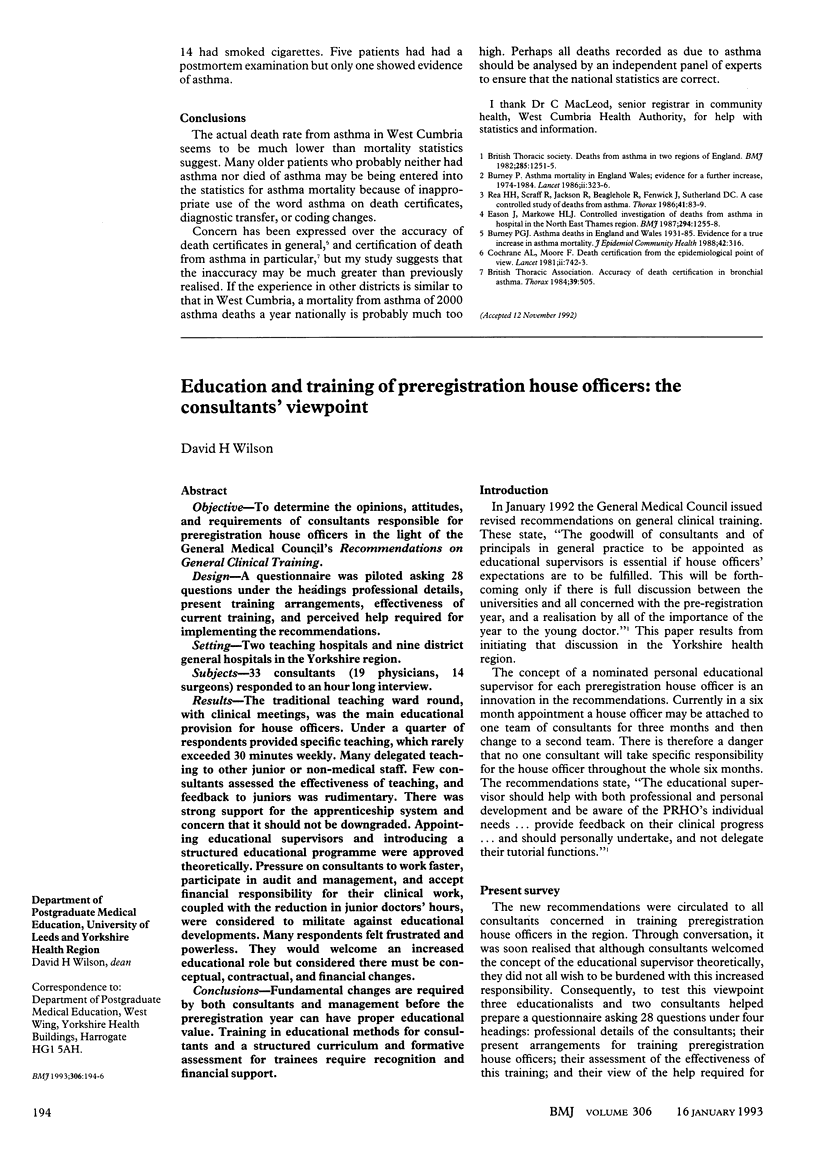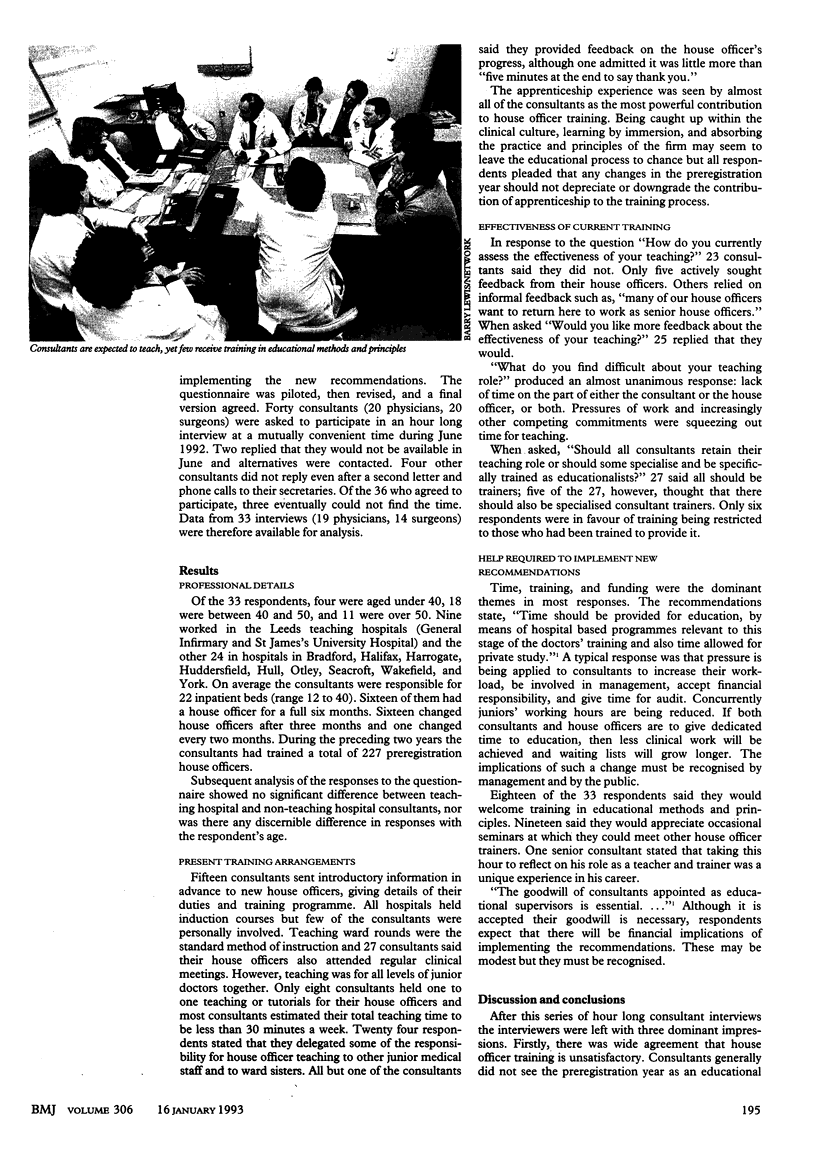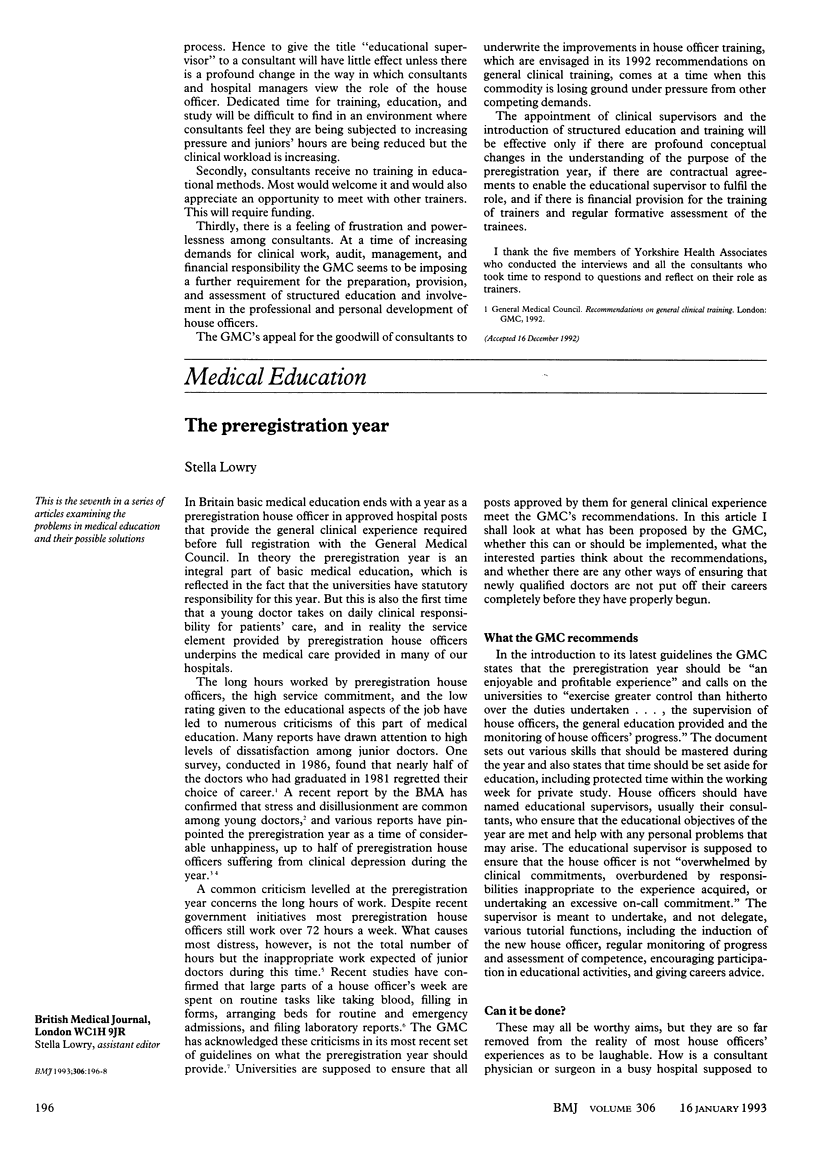Abstract
OBJECTIVE--To determine the opinions, attitudes, and requirements of consultants responsible for preregistration house officers in the light of the General Medical Council's Recommendations on General Clinical Training. DESIGN--A questionnaire was piloted asking 28 questions under the headings professional details, present training arrangements, effectiveness of current training, and perceived help required for implementing the recommendations. SETTING--Two teaching hospitals and nine district general hospitals in the Yorkshire region. SUBJECTS--33 consultants (19 physicians, 14 surgeons) responded to an hour long interview. RESULTS--The traditional teaching ward round, with clinical meetings, was the main educational provision for house officers. Under a quarter of respondents provided specific teaching, which rarely exceeded 30 minutes weekly. Many delegated teaching to other junior or non-medical staff. Few consultants assessed the effectiveness of teaching, and feedback to juniors was rudimentary. There was strong support for the apprenticeship system and concern that it should not be downgraded. Appointing educational supervisors and introducing a structured educational programme were approved theoretically. Pressure on consultants to work faster, participate in audit and management, and accept financial responsibility for their clinical work, coupled with the reduction in junior doctors' hours, were considered to militate against educational developments. Many respondents felt frustrated and powerless. They would welcome an increased educational role but considered there must be conceptual, contractual, and financial changes. CONCLUSIONS--Fundamental changes are required by both consultants and management before the preregistration year can have proper educational value. Training in educational methods for consultants and a structured curriculum and formative assessment for trainees require recognition and financial support.
Full text
PDF





